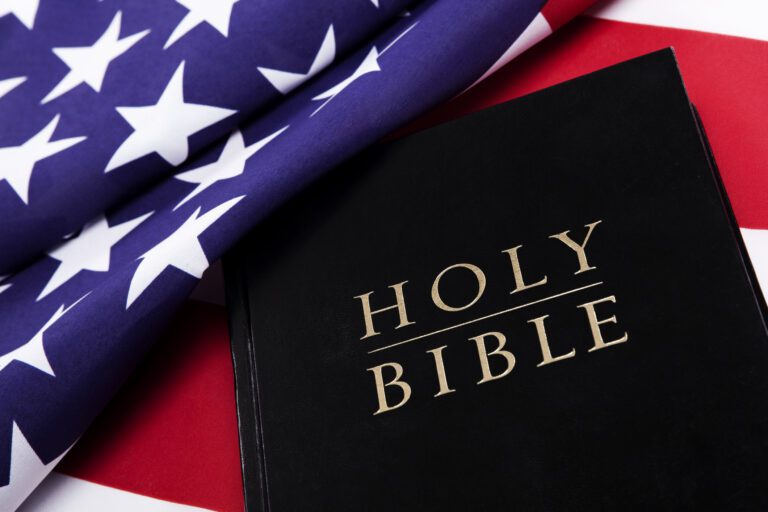The Bible is clear regarding Christians’ duty to civil government. Christians must submit to the authority of civil government. They must obey governmental authorities, whether the authority is legitimate or not and just or unjust, until that authority requires the citizenry to disobey God, in which case the Christian should obey God. Furthermore, Scripture expressly states that Christians are to pray for the civil authorities.
It is God’s will for there to be civil government with individuals appointed to exercise authority over the citizenry, therefore, to resist the authority of such persons acting in behalf of any form of civil government, in the exercise of their lawful authority is an act of disobedience to God.
Christians understand that the reasons for obeying civil authority are that it is the will of God and that those in authority of the governmental apparatus have been ordained by God to repress evil and promote good. Therefore, you have no reason to fear government that does not abuse the power delegated to it by God, so long as you do good.
But this is not a one-way street. While Christians and all citizens owe obedience to God’s will in subjecting themselves to civil authority, the government owes obedience to God in exercising their authority over the citizenry. No government exists unless God allows it. And governments of all forms, legitimate or not and just or unjust, secular or religious owe obedience to God in their civil practices.
On January 1, 1802, President Thomas Jefferson responded to an address from the 26-church Danbury Baptist Association. The Danbury Baptist Association was concerned with government overreach into matters of religion. Jefferson included the following phrase in his response: their legislature should “make no law respecting an establishment of religion, or prohibiting the free exercise thereof,” thus building a wall of separation between Church & State. The last portion of this phrase contained the unfortunate and inaccurate statement regarding “a wall of separation between Church & State.”
Great harm was caused when Jefferson’s “wall of separation” idea was inculcated into United States law. The United States Supreme Court (the “Court”) first applied this phrase to the First Amendment of the U.S. Constitution in the 1947 Court case Everson v. Board of Education when Justice Hugo L. Black wrote in his majority opinion that the First Amendment erected a wall of separation between church and state. And it has been a standard Court rule since.
The First Amendment states, “Congress shall make no law respecting an establishment of religion, or prohibiting the free exercise thereof.” The prohibition applies to the U.S. Congress and the First Amendment does not prohibit religion from being involved in matters of state whether legislative, executive, or judicial. Using the incorporation doctrine, the Court later applied the First Amendment and much of the Bill of Rights to the state and local governments, overruling previous Court opinions to the contrary (Barron v. Baltimore (1833); United States v. Cruikshank (1876)). The First Amendment is plain and unambiguous ― it only constrains the United States Congress.
Jefferson’s inappropriate use of the term and the Court’s essential codification of this idea that declared a separation of the government apparatus and God and His church results in most Americans believing that the separation actually exists. The U.S. Constitution does not prohibit God in government and thus does not prohibit Bible reading on school property (Abington School District v. Schempp, 374 U.S. 203 (1963)), prayer in public schools (Engel v. Vitale (1962)), nativity scenes (i.e., religious symbols) on town property (County of Allegheny v. ACLU, 492 U.S. 573 (1989)), etc. Nevertheless, the Court disagrees and has ruled in the cases listed in the above parentheticals that such actions do violate the First Amendment.
We must say, though, that there is to a certain extent an acceptable “separation” that exists between the role of government and the role of the church. Jesus alluded to this in Mark 12:17 when He said, “Render to Caesar the things that are Caesar’s, and to God the things that are God’s.” Jesus is teaching that governments have legitimate authority over their subjects in their own jurisdiction but this authority is not unlimited. Caesar’s image was on the coin of the Roman Empire for use in the Roman Empire but God’s image is written in the soul of every human being. God’s power is thus infinite and unlimited. Moreover, Jesus also teaches that government’s power is from God (John 19:11).
So, not only is government’s power limited in scope, there are also roles limited to government and roles limited to the church. The church may not enforce their religious tenets in a government’s proper realm of authority and governments cannot interfere with an individual’s practice of religion such as when a Christian prays or reads the Bible in school. But the Court has ruled that government-directed prayer does violate the First Amendment. Such was the case in Engel v. Vitale (1962).
Therefore, government is an institution established by God and the government owes obedience to God in exercising their legitimate authority over the citizenry. Those individuals invested with the authority of governance are appointed for the benefit of the people and as such, are servants of the people and of God for the sole purpose of providing for the general welfare of society.
As a practical matter, Christians are bound to accept the separation of church and state as established by the Court. However, government officials, elected and bureaucratic, must act in obedience to God in the performance of their official duties and within proper limits and roles. And the church must be ready to call the government to task when it acts contrary to God’s will even while remaining in subjection to said government.


1 comment
דירות דיסקרטיות בחולון
Itís nearly impossible to find educated people for this subject, but you sound like you know what youíre talking about! Thanks